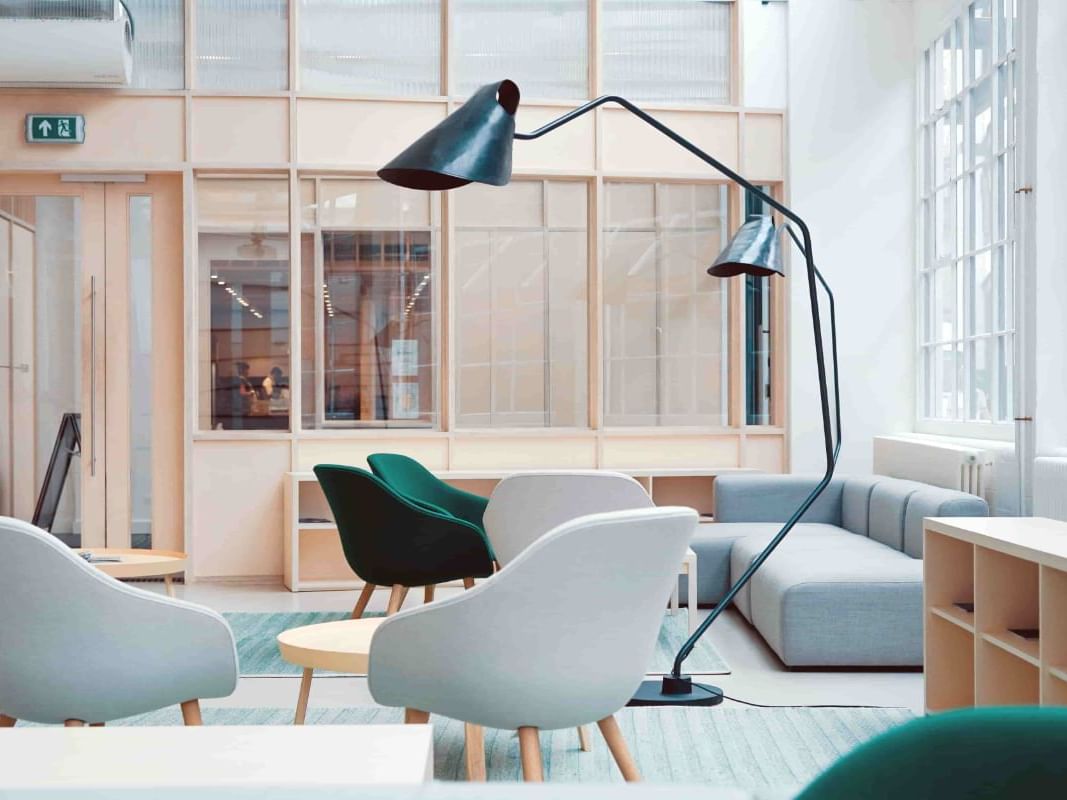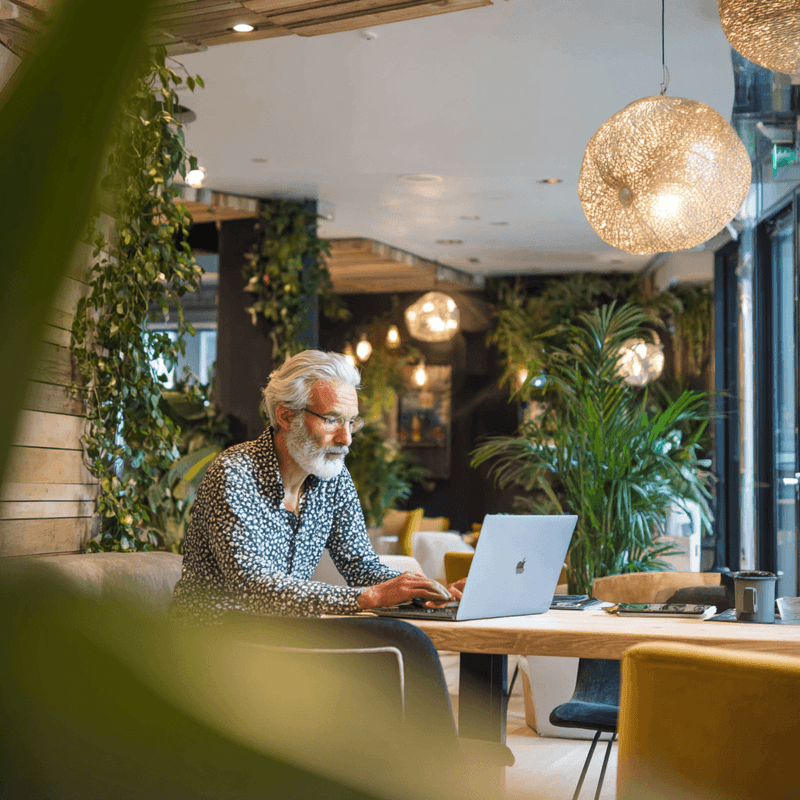
Recently, we have been hearing about self-sufficient offices. Both terms refer to the same idea: an optimized workplace that provides for its own energy needs. No more energy subscriptions for electricity or gas, and no more contracts for sanitary water! But how is this possible? Will the offices of the future be energy self-sufficient? Is it feasible today? Focus on the self-sufficiency of our workspaces: we explain why to favor self-consumption, how to implement it and what are the essential facilities.
Self-consumption: an ideal model
What is energy self-sufficiency? It is an ideal model for a given place (a house or an office, for example) where you do not consume any energy outside your own production. Thus, one is free of suppliers and energy (and water) networks to meet its own needs.
This model is already favored by many households, especially in rural areas. But recently, urban offices, or entire buildings, are looking to achieve this goal. If self-consumption is advantageous, it remains quite expensive. It is a long-term investment that promises to pay off in the long run and save money.
In reality, most self-sufficient homes or buildings are not fully self-sufficient. They often produce energy, consume it, and buy what they need from a supplier to meet all their needs. But we can hope that tomorrow's offices will be entirely self-sufficient! You can find all the information you need about self-consumption on this site: installation of solar panels, energy storage, financing possibilities, etc.
What are the necessary installations?
Several installations are essential to achieve a self-consumption goal. There are three essential installations: an electricity production system, a heating system and a sanitary water production system.
Concerning electricity, most buildings or houses choose photovoltaic. It is a technology that is more and more sophisticated and has proven itself. It transforms solar energy into electricity. This is called solar self-consumption. Thanks to an installation of solar panels, it is possible to achieve total self-consumption of electricity.
The sun also has a role to play in heating. Several methods are available for self-consumption in heating. Today, solar thermal systems are preferred, where solar collectors can produce domestic hot water or hot air, which can then be blown into the building. It is quite possible to supply a complex heating system with this system! Offices that are self-sufficient in heating must also think about insulation and avoid energy losses.
Finally, the third essential installation for self-sufficient offices concerns the production of sanitary water. A place is not totally autonomous without this last installation. But how to produce its water? By collecting rainwater! An ingenious system of water recovery must be connected to the offices. Then, it is necessary to purify the collected water. Although this process is not yet very common in offices, it is starting to appear in some new energy autonomous buildings.
Eco-responsible offices
But why choose to develop self-sufficient offices? There are undeniable advantages to opting for self-consumption, whether for a personal home, for a public place or for corporate offices. There are real savings on electricity, gas and water bills and contracts. This way, the money saved can be used for productive projects or investments for the company!
By developing self-sufficient offices, you are embarking on an eco-responsible approach that favors the environment and limits your carbon footprint. It's innovative and good for the planet! It's also a global approach for the company: you don't only think about the structure of the building, but about your whole team and the well-being of each person who works there. It's an investment that can pay for itself over ten years, depending on the work done. And your offices are energy independent, so you no longer need suppliers and intermediaries. You are free!
Given these numerous possibilities and the advantages of energy self-sufficiency, there is little doubt that most offices of tomorrow will adopt a self-consumption approach! So, why not be an initiator and a trendsetter?
-
Why a digital company must also invest in its professional spaces

23/02/2026 Why a digital company must also invest in its professional spaces
It's easy to imagine a digital company operating with almost no materials. Computers, the cloud, video meetings and you're all set. Yet behind this modern image, there are offices, workstations and reception areas. The digital world is based on a very tangible environment.
-
How can the flexible office reconcile real-estate costs and employee expectations?

05/01/2026 How can the flexible office reconcile real-estate costs and employee expectations?
For decades, the office has been seen as an immutable anchor: an assigned position, a fixed desk, a space designed to accommodate every employee from Monday to Friday, between 9am and 6pm. But this model, long considered indisputable, is now faltering under the impact of profound transformations in the world of work. Massive telecommuting, renewed employee expectations, the search for balance and meaning, and economic pressure on real estate are all forcing organizations to rethink their approach.
-
From cost reduction to cultural transformation: the real challenges of the flexible office

15/12/2025 From cost reduction to cultural transformation: the real challenges of the flexible office
Giving up personal office allocation was no longer seen as an upheaval, but rather as an obvious way of reducing costs, improving real estate efficiency and adapting spaces to contemporary uses. However, the companies that have taken the plunge recognize that the reality far exceeds this initial justification. A genuine cultural transformation was underway!